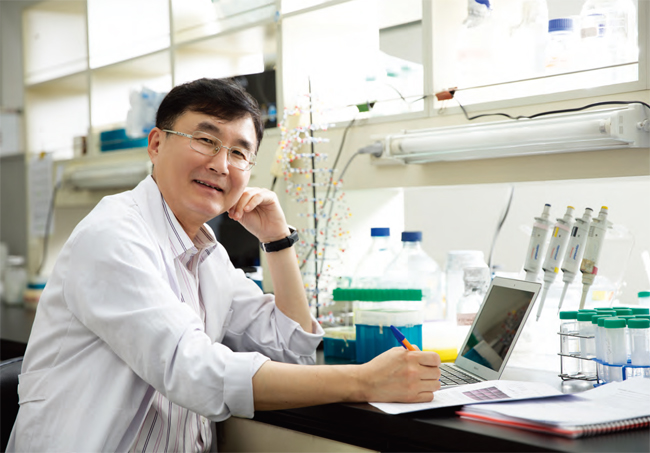Cellular Heterogeneity Research Center (SRC) enters successful research phase 2
- Views 9381
- Writer 커뮤니케이션팀
- 보도일자 2020-01-28
The Cellular Heterogeneity Research Center (SRC, hereinafter “the research center”; Director: Professor Myeong-seok Lee) of our university’s Division of Biological Sciences successfully entered the second phase of the Leading Research Center Project. Since the research center supported by the Ministry of Science and ICT and the National Research Foundation of Korea was selected as the first Leading Research Center Project in 2016, it underwent presentation and interview for the phase 2 reentry at the end of 2019. As a result, the research center is to receive 3.9 billion won in funding for 3 years from this year to 2022.

The Leading Research Center Project is the largest basic research project, which aims to create an environment for world-class research centers by discovering and fostering excellent basic research groups with creativity and excellence. It is a project to foster the next generation of creative and convergence-related talents through group research, and to provide quality jobs for young researchers.
The research center, which is comprised of Group 1: Identification of tissue-specific heterogeneity of adherent cells (Professors Yeong Yang, Jong-hun Park, Geun-il Kim, and Jong-min Kim) and Group 2: Identification of heterogeneity mechanisms and studies of heterogeneity control of floating cells (Professors Myeong-Seok Lee, Jong-Seok Lim, Seok-Jun Yun, and Yong-hwan Kim), introduced a strategy for characterizing heterogeneous cells, established a research model system for them, and showed early research results that propose possible new concepts of disease treatment and the possibility of identifying relevant candidates in order to identify the root cause of various diseases during the first phase of the research.
The research center plans to analyze each disease-related function using animal models of adherent cell heterogeneity-related genes in the second phase of the study, develop a floating cell heterogeneity control technology, and develop a new concept of anticancer technology.
Myung-seok Lee, the director of the center, gave a high-spirited evaluation by saying “Because we are achieving research results that can help us introduce a strategy to characterize heterogeneous cells caused by diseases, try to establish a research model system, and present possible new concepts of disease treatment and derive relevant candidate substances, I believe we are headed in the right direction to achieve our research goals.” In particular, he also added that “The fact that the joint research among the core researchers is actively being carried out was able to meet the center's goals, which led to an excellent evaluation” and "We will strengthen our teamwork among researchers, and spare no efforts toward our goals for the remaining research."




